Eight UC San Diego Researchers Among ‘1,000 Best Female Scientists in the World’
Inaugural ranking seeks to celebrate and elevate the long-overlooked contributions of women in academic science
Story by:
Published Date
Article Content
Eight researchers from the University of California San Diego are listed in the first-ever ranking of the “1,000 Best Female Scientists in the World” by Research.com, an analytics platform that advocates for improved research quality and also ranks universities, scholarly journals and academic conferences.
They are Sonia Ancoli-Israel, Susan S. Taylor, Steffanie A. Strathdee, Marta Kutas, Susan F. Tapert, Andrea Z. LaCroix, Terry L. Jernigan and Irene Litvan.
The rankings are based on multiple factors, including the scientists’ general H-index, a quantitative metric intended to estimate the importance, significance and broad impact of a scientist’s cumulative research contributions, which measures the number of studies (H) published in scholarly journals by a researcher that have been cited by others in different scholarly publications at least H times. Other factors considered include awards, fellowships and academic recognitions.
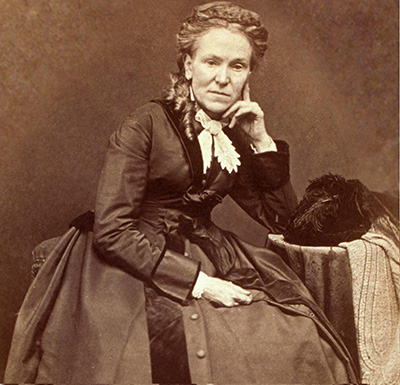
Jorge Eduardo Hirsch, PhD, a professor in the Department of Physics at UC San Diego, first proposed the H-index in 2005. It is sometimes called the Hirsch index or Hirsch number. According to Hirsch’s calculations, a person with 20 years of research experience would have a “good” H-index of 20; 40 would be considered “great” and 60 would be “remarkable.”
The ranked UC San Diego scientists, whose interests span the sciences and are often cross-disciplinary, all have H-indexes of 98 or higher based on data derived from Google Scholar and Microsoft Academic Graph. The data were collected on June 12, 2021, and so does not reflect current H-index numbers.
Females represent just 33 percent of the world’s researchers and only 12 percent of members of national science academies. A study published earlier this year in Nature found women are credited less often than men in published research, and are less likely to be named on a patent or in an article.
Among graduate students, the chance of receiving attribution in published work is 14.97 percent for females compared to 21.47 percent for males. The most common reasons cited were that contributed work was not known, appreciated or was simply ignored.
“Groundbreaking ideas, innovative research and exemplary work do not have a gender, and we need to build equity into processes related to whose work is deemed significant,” said Vice Chancellor of Research Corinne Peek-Asa. “The work of each researcher should speak for itself, but until that day I’m proud that UC San Diego is ahead of the curve in promoting the significant work of our growing research community of women.”
Peek-Asa noted that in the last decade, UC San Diego has seen more than a 40 percent increase in female faculty members. In a 2016 study, UC San Diego ranked first among the 100 largest universities in the nation for enrolling and graduating women with majors in Science, Technology, Engineering and Math, with one in three women graduating with a STEM degree. UC San Diego’s proportion of STEM graduates was three times the national average.
Women leading research projects at UC San Diego has risen from approximately one in five to more than one in three over the past 10 years.
The new ranking examined general H-index data for 166,880 female researchers around the world in all major areas of science. It lists the top 1,000 female scientists with the highest H-indexes. The ranking is not a complete or comprehensive assessment of a researcher’s standing or contributions within their scientific communities. Other metrics, such as Web of Science, produce different results.
“We are painfully aware that academic research is still a predominantly male profession, and we believe that female scientists deserve an equal chance to be represented and praised for their achievements,” wrote Research.com editors. “Our aim is to inspire female scholars, women considering an academic career, as well as decision-makers worldwide with the example of successful women in the scientific community.”
UC San Diego researchers ranked are:
“Groundbreaking ideas, innovative research and exemplary work do not have a gender, and we need to build equity into processes related to whose work is deemed significant,” said Vice Chancellor of Research Corinne Peek-Asa. “The work of each researcher should speak for itself, but until that day I’m proud that UC San Diego is ahead of the curve in promoting the significant work of our growing research community of women.”
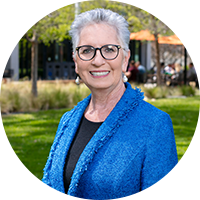
Sonia Ancoli-Israel (H-index: 138; Citations: 62,616; Publications: 579)
Sonia Ancoli-Israel, PhD, is Professor Emeritus of Psychiatry and professor of research at UC San Diego School of Medicine and the UC San Diego Center for Circadian Biology. She is among the nation’s preeminent experts in the fields of sleep disorders and circadian rhythms particularly in normal aging and neurodegenerative disease, and in cancer. Her research has included studies on the longitudinal effect of sleep disorders on aging, therapeutic interventions for sleep problems in dementia and in the relationship between sleep, fatigue, and circadian rhythms in cancer. In the rankings, Ancoli-Israel is listed 161 in the world and 107 among U.S. female scientists.
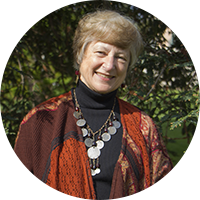
Susan S. Taylor (120; 54,209; 622)
Susan Taylor, PhD, is a Chancellor’s Distinguished Professor in the Departments of Chemistry and Biochemistry and a Distinguished Professor in the Department of Pharmacology at UC San Diego School of Medicine. She is also affiliated with the San Diego Supercomputer Center and the Institute of Engineering in Medicine. She is an interdisciplinary structural biologist who focuses on cell signaling and protein kinases. In the rankings, Taylor is listed 337 in the world and 215 among U.S. female scientists

Steffanie A. Strathdee (112; 48,367; 808)
Steffanie Strathdee, PhD, is associate dean of global health sciences and Harold Simon Distinguished Professor at UC San Diego School of Medicine. She is an infectious disease epidemiologist and co-director of the Center for Innovative Phage Applications and Therapeutics. Her research encompasses work on HIV, COVID-19, MPox and hepatitis C virus. In the rankings, Strathdee is listed 474 in the world and 292 among U.S. female scientists.
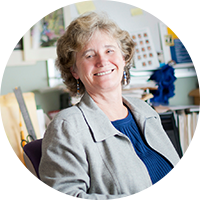
Marta Kutas (111; 54,994, 306)
Marta Kutas, PhD, is Distinguished Professor Emerita and former chair of the Department of Cognitive Science (2007-2019) and an adjunct professor in the Department of Neuroscience at UC San Diego School of Medicine. She directs the Center for Research in Language. As a cognitive electrophysiologist, Kutas investigates how brain waves recorded from intact human scalp could be systematically used to explore cognition, such as how meaning is organized, accessed and constructed. In the rankings, Kutas is listed 501 in the world and 306 among U.S. female scientists.

Susan F. Tapert (110; 34,878; 309)
Susan Tapert, PhD, is a Professor and Vice Chair for Academic Affairs in the Department of Psychiatry at UC San Diego School of Medicine. Her research evaluates neural sequelae of and risk factors for adolescent substance use and other addictive behaviors. Tapert is co-director and a site principal investigator (PI) for the National Consortium on Alcohol and NeuroDevelopment in Adolescence and associate director and a site PI for the Adolescent Brain Cognitive Development study, which was launched in 2015 to explore the development of nearly 12,000 children. In the rankings, Tapert is listed 546 in the world and 333 among U.S. female scientists.
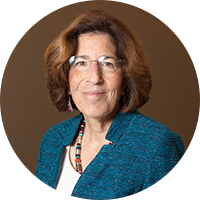
Andrea Z. LaCroix (110; 34,138; 275)
Andrea LaCroix, PhD, is Distinguished Professor of Epidemiology and director of the Women’s Health Center of Excellence in the Herbert Wertheim School of Public Health & Human Longevity Science. Her work identifies modifiable factors associated with living longer and with intact mobility and cognition in older women and men. She also studies biomarkers of healthy longevity, such as epigenetic age acceleration. She leads several long-term, large prospective studies and both preventive and treatment-focused randomized controlled trials. In the rankings, LaCroix is listed 547 in the world and 334 among U.S. female scientists.
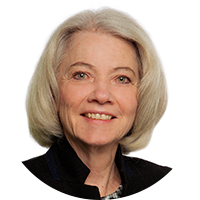
Terry L. Jernigan (109; 45,415; 285)
Terry Jernigan, PhD, is Distinguished Professor of Cognitive Science, Psychiatry and Radiology at UC San Diego School of Medicine, and director of the Center for Human Development at UC San Diego. Using brain imaging and behavioral methods, her research has focused on brain development and aging, neurodevelopmental disorders, neuropsychiatric and substance use disorders, and neurodegenerative disorders. Most recently, she has looked at the developing human mind and brain, with a focus on the dynamic neurodevelopmental processes that give rise to human individuality — and on how these processes are affected by experience, substance exposure, genetic variation and other factors. She is co-director of the Coordinating Center for the ABCD Study, a longitudinal effort to track brain development and health of nearly 12,000 children over a decade. In the rankings, Jernigan is listed 575 in the world and 354 among U.S. female scientists.

Irene Litvan (98; 57,680; 406)
Irene Litvan, MD, MSc, is the Tasch Endowed Professor of Neurology and director of the Parkinson and Other Movement Disorders Center at UC San Diego School of Medicine and a board-certified neurologist specializing in movement disorders, behavioral neurology and neuroepidemiology. Her work centers on identifying symptomatic therapies that can improve the quality of life of patients with neurodegenerative disorders, who present with parkinsonism and/or dementia, and identify biological therapies that can slow or stop their disease progression. She leads and participates in multicenter studies and international task forces to improve neuropathologic and clinical diagnostic criteria, search of robust biomarkers to measure therapeutic outcomes and improve disease management, as well as understand disparities in access to care and research. In the rankings, Litvan is listed 952 in the world and 597 among U.S. female scientists.
Other findings from the 2022 World Ranking of Female Scientists by Research.com:
- Scientists from the United States dominated the list, with 623 cited scholars
- Ranked female scientists primarily published their work in the field of medicine
- Harvard University had the most ranked female scientists with 40, followed by the National Institutes of Health with 34
- U.S. universities and institutions accounted for nine of the top 10 leading institutions with the highest number of ranked female scientists. The exception was Oxford University (ranked 6th).
You May Also Like
Stay in the Know
Keep up with all the latest from UC San Diego. Subscribe to the newsletter today.




